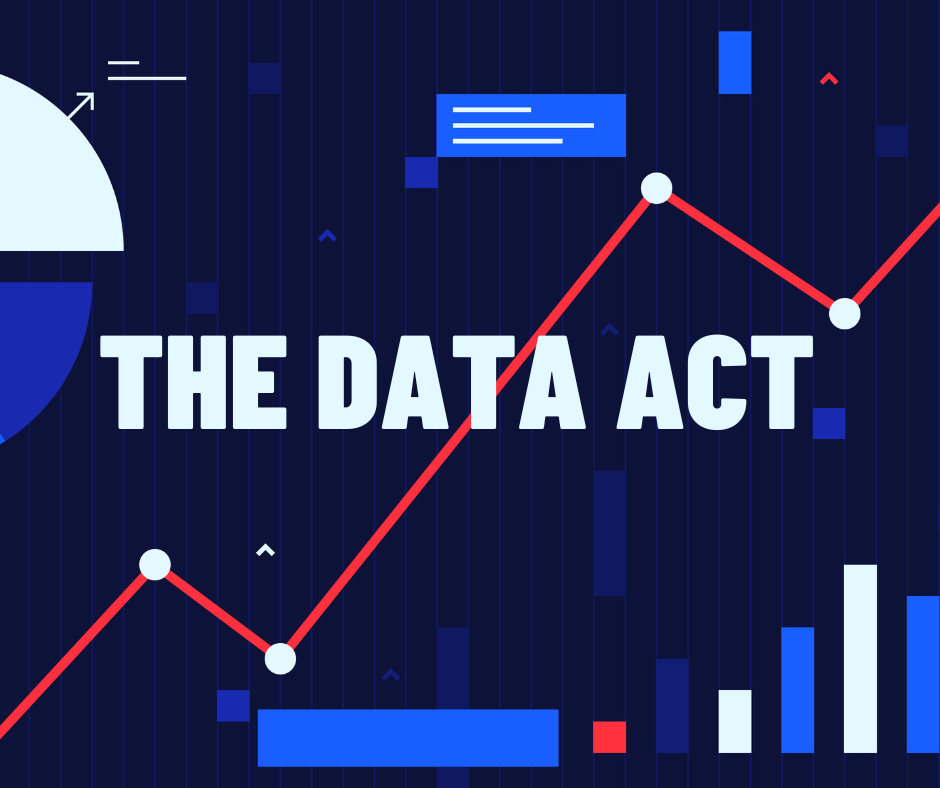Turning the Data Act into the key to a successful startup-fuelled recovery
In February 2022 the European Commission presented the Data Act. The Data Act is one of the main pillars of the European Strategy on Data, the plan that the EU has to create a single market for data that “will allow it to flow freely within the EU and across sectors for the benefit of businesses, researchers, and public administrations“.
In fact, the Data Act proposal seeks to establish a cross-sectoral governance framework for the access and re-use of non-personal data generated by the use of products, by companies, users, and public entities. The Commission’s intention is to build the potential for the creation of additional data-driven business models.
But what does this mean in practice? As we move towards enhanced digitalization, we are constantly generating useful and usable data. For example, when we drive our cars we produce data, when we make a payment, when we take a plane for vacation. This large amount of information, mostly non-personal, if stored, organized, and analyzed properly, can fuel the next startup that will change the world. Unlocking this data is the goal of the Data Act.
If the Commission’s proposal was adopted, manufacturers of products and providers of related services will have to make the non-personal data generated by the use of these products and services easily accessible to other players, from businesses (for instance startups!), consumers, or even public entities. These, in turn, can use this data to create or better the services they provide for consumers.
Here’s an example: imagine a modern IoT washing machine capable of detecting the clothes’ color and fabric type through its multiple sensors and adjust soap quantity and water consumption accordingly. If adopted in its current form, the Data Act will make the washing machine manufacturers share these data. In doing so, startups will have access to them and potentially develop new complementary products or services around. For example, a startup could come up with an app that analyses the energy traffic and start your laundry at a specific time to be more energy efficient and save you some money. Win-win, right?
With a few adjustments from the original proposal, the Data Act has the potential to be the way to kick-start a startup-powered economic recovery. After all, an entrepreneur is just an idea, and the right (easily accessible!) data set away from a startup! Here are a few ideas to take the Data Act to a new level and empower startups to transform the data economy: clarify key concepts such as the relationship with other legislations (for instance, the GDPR), use alternative approaches to mandatory obligations, and encourage global data flows. The Data Act should be an occasion for startups to flourish and deliver their best innovative ideas. For these reasons, we believe that the Data Act should avoid legal uncertainty with unclear definitions or unnecessary restrictions.
Startups Entrepreneurs are ambitious and optimistic by default (it comes with the territory). The Data Act should transform this positivity into a possibility by seeing this piece of legislation as a way to facilitate data flows, rather than a compliance burden.
The Data Act should be an opportunity to build the foundation for new small players to establish in Europe and start their businesses. Having more startups and scale-ups in Europe will entail benefits for the European Market as a whole: more jobs, enhanced consumer choice, and fairer competition. We want to make sure that the Data Act is the right tool to deliver this. Policy makers, are you willing to bring more startups to Europe? We do hope so!

